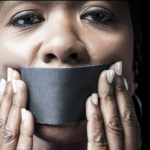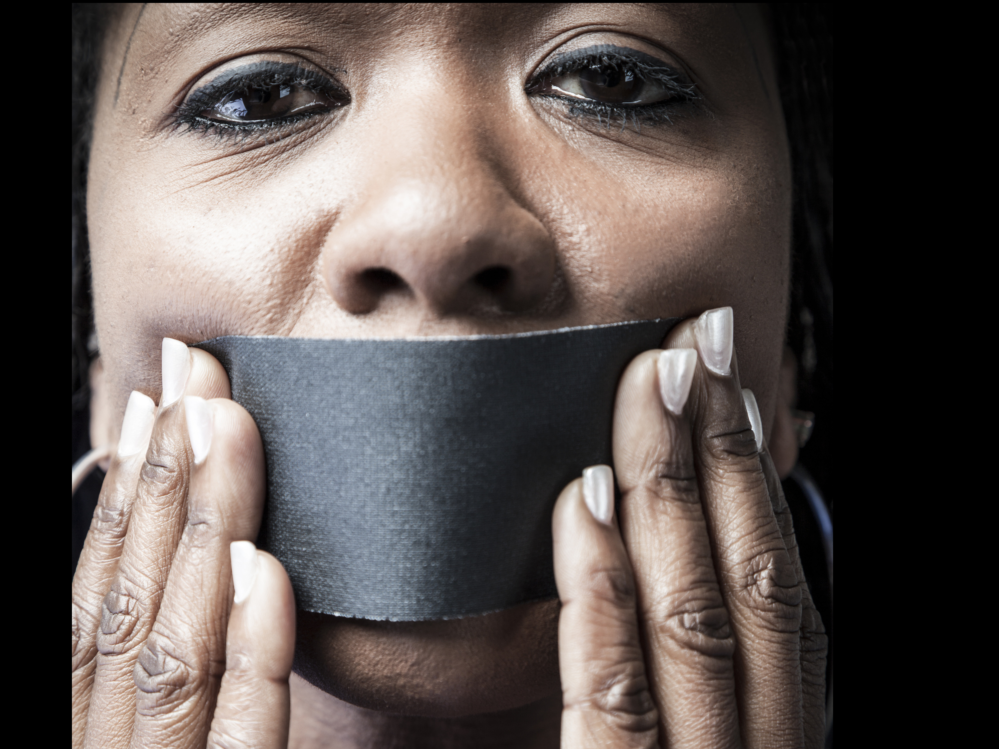[ad_1]

Anita Hill was vilified in 1991 when she publicly testified about the sexual harassment she endured while working under then-Supreme Court judge nominee Clarence Thomas. Not only did she put her career and reputation on the line by coming forward, she was also subsequently interrogated by a panel of nine white men during a televised Senate hearing. In defense, Thomas, who repeatedly denied Hill’s claims, said he was being unfairly targeted because of his race and likened Hill’s hearing to a “high-tech lynching.” After Hill’s three-day hearing, Thomas won over public opinion from both white and black people and sealed his fate as a Supreme Court Justice. Hill, on the other hand, was shunned by the majority of Americans and abandoned by her own community.
While hundreds of black women signed a proclamation rallying behind Hill, the bulk of African Americans turned against her. According to surveys held after the hearing, more than 50% of Americans polled in favor of Thomas’ confirmation and his favorability among blacks skyrocketed to nearly 70%.
History Repeats
Today, 27 years later, the nation finds itself in a similar predicament as conservative Supreme Court nominee Brett Kavanaugh stands accused of sexual assault by multiple women—except this time, all the characters in this saga are white. One of Kavanaugh’s accusers, Dr. Christine Blasey Ford, testified Thursday morning before the U.S. Senate about the sexual trauma she endured when she and Kavanaugh were both teenagers. Since going public, she said she’s endured death threats and harassment. Yet, it’s likely that she will be treated and seen more favorably than Hill since she doesn’t carry the same burden of proof of a dark-skinned black woman. To her advantage, whiteness evokes empathy.
“People perceive a white, middle-class woman with blond hair a particular way, and that image has been marketed for much of the entire fashion-model industry,” Ravi Perry, a political scientist at Virginia Commonwealth University, told CNN. “Had Anita Hill been white or been a light-skinned black person or maybe even Latina or a light-skinned Asian woman, people would have viewed her differently,” she added. “Dark skin, for a lot of people, has an association with that which is untrustworthy.”
Dr. Ford: “I believed he was going to rape me.” pic.twitter.com/tauupdnaKS
— MSNBC (@MSNBC) September 27, 2018
Meanwhile, the Kavanaugh hearing comes just days after the country watched another powerful man’s fall from grace in the #MeToo era: Bill Cosby. After a long legal battle, the legendary actor and comedian was sentenced to 3 to 10 years behind bars on Sept. 25 for drugging and sexually assaulting Andrea Constand. He has also been accused of raping dozens of women over the course of five decades. The 81-year-old TV icon was seen silently walking into a Pennsylvania penitentiary with handcuffs, while his defenders—both men and women alike—loudly protested that he’s a victim of racism and sexism.
Victim Shaming
#MeToo founder Tarana Burke commented on the sentiment of those within the black community who dismiss the claims of sexual assault survivors and find it easier to empathize with men like Cosby, a convicted rapist.
“The vitriol and backlash and people in our community is unbelievable,” Burke said in a recent interview on SiriusXM’s Joe Madison Show. She went on to detail how this has even impacted her own personal life and the work she does to help women victimized by sexual predators. “Every time something happens with Bill Cosby in the media, I get more death threats, heightened threats from people in our community,” she said. “As if we crafted some kind of conspiracy against Bill Cosby as if he didn’t admit out of his own mouth that he drugged and raped women for decades. And so this is not our doing. It’s not the Me Too movement against Bill Cosby. It’s not women in a conspiracy against Bill Cosby. It’s not white women taking down a black man. It’s a black man who thought it was OK to have un-consensual sex with dozens of women.”
According to Burke, reaction to Cosby’s sentencing highlights the lack of education around sexual abuse. “I think that what this calls for is an education for the masses who are not survivors of sexual violence and even for some who have. Because I’ve also heard people who are survivors of sexual violence who did report say, ‘Well, I reported it, why couldn’t they report it?’ And the truth is we don’t have a real understanding of what the….realities of being a survivor of sexual violence and what it does to your psyche and what it does to your self-esteem and how the general public responds to survivors. And so not telling for however many years…[is] no indication of the validity of the claim. Right? It’s about coming to terms of what you experienced. It’s about feeling safe. That when you do disclose what you experienced to the general public, that it’ll be accepted and you won’t be shamed or ridiculed or ostracized.”
Burke also affirmed her support for Blasey Ford, dismissing critics who ridicule Blasey Ford for not speaking publicly about her allegations against Kavanaugh sooner. “She came forward to her therapist several years ago because it was affecting her marriage. Right? So there’s evidence that this is something that she’s been grappling with for the last 30 years, not just sitting on for that time period,” said the activist. “I can see where she grappled with this along the way. I have my sensibilities telling me that she didn’t; she probably did not want to be dragged through the media like Anita Hill was, but knew that there was a higher responsibility to report on who this individual was based on her experience.”
The activist added that the epidemic of predatory behavior toward women transcends politics. “This is not just about politics, it is about the way in which this country responds to survivors of sexual violence,” she said. “There’s no statute of limitations on murder because it’s so serious, but we are not taking into account that when your body is violated it is a form of murder of your spirit. And if people really understood that and could really have empathy for the reality of surviving sexual violence, I think we will respond to it differently.”
[ad_2]
Source link

